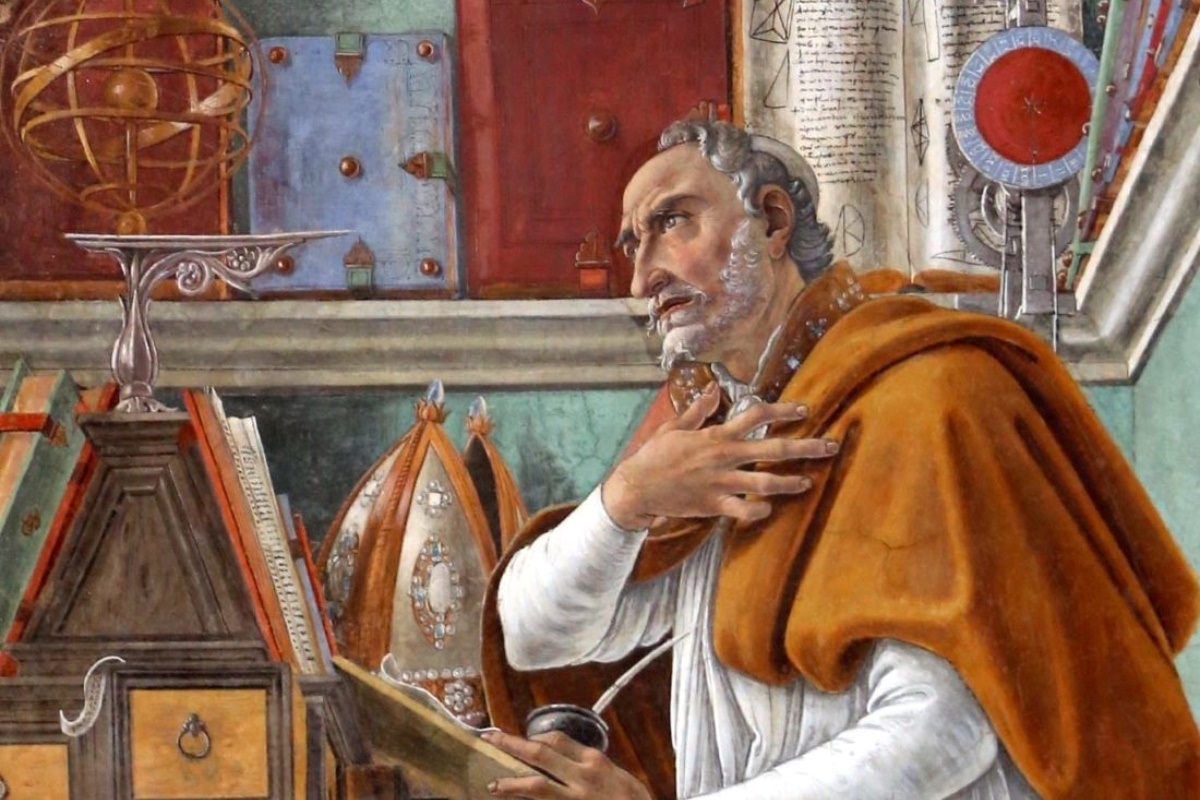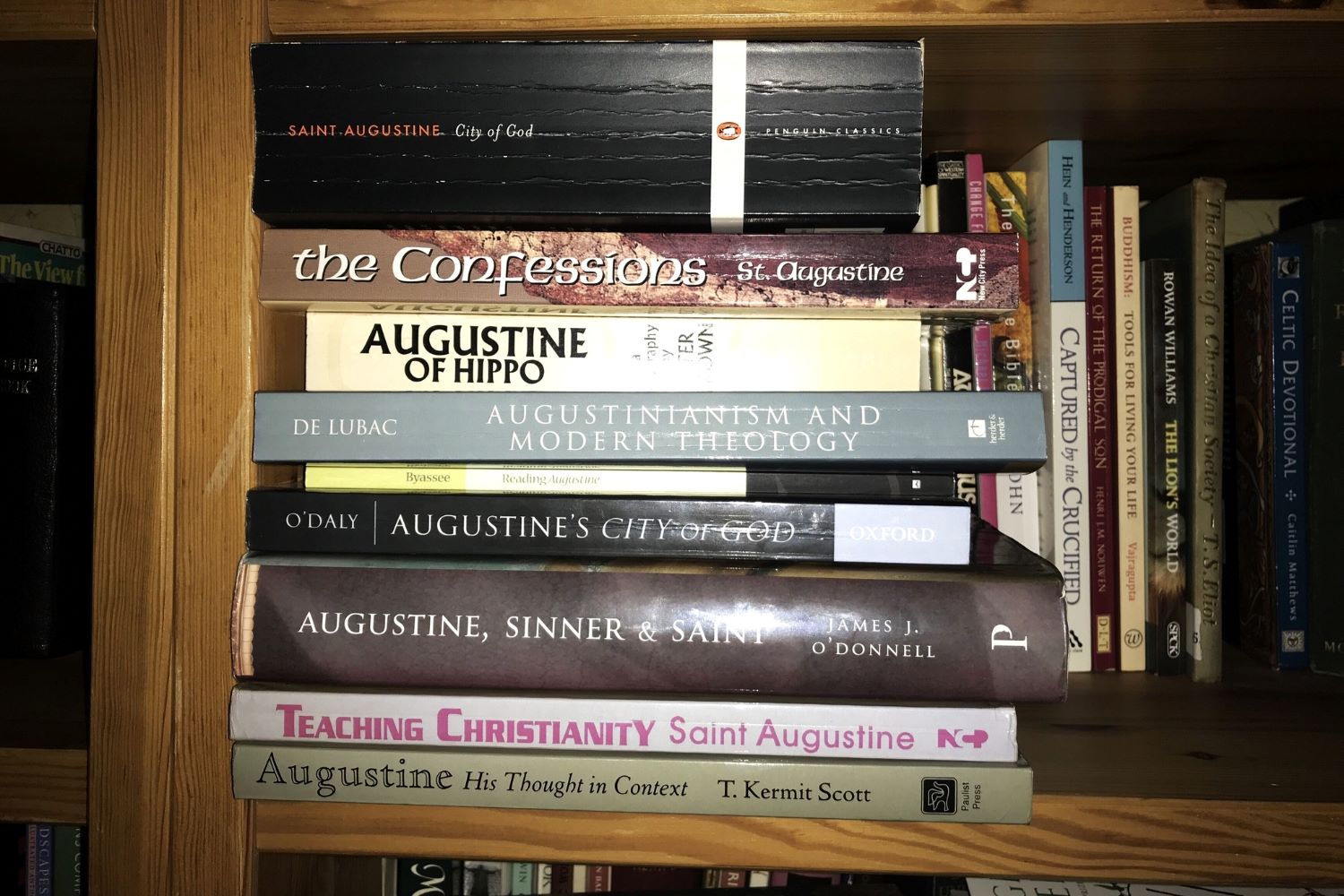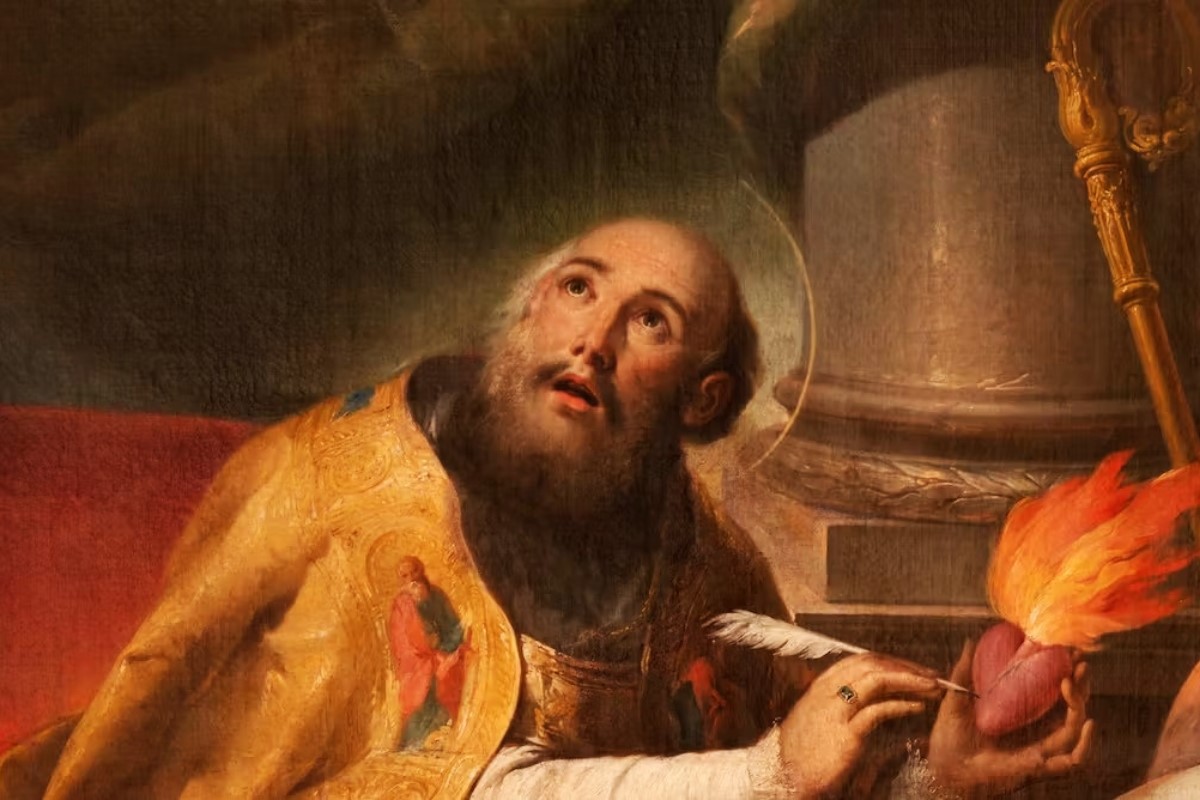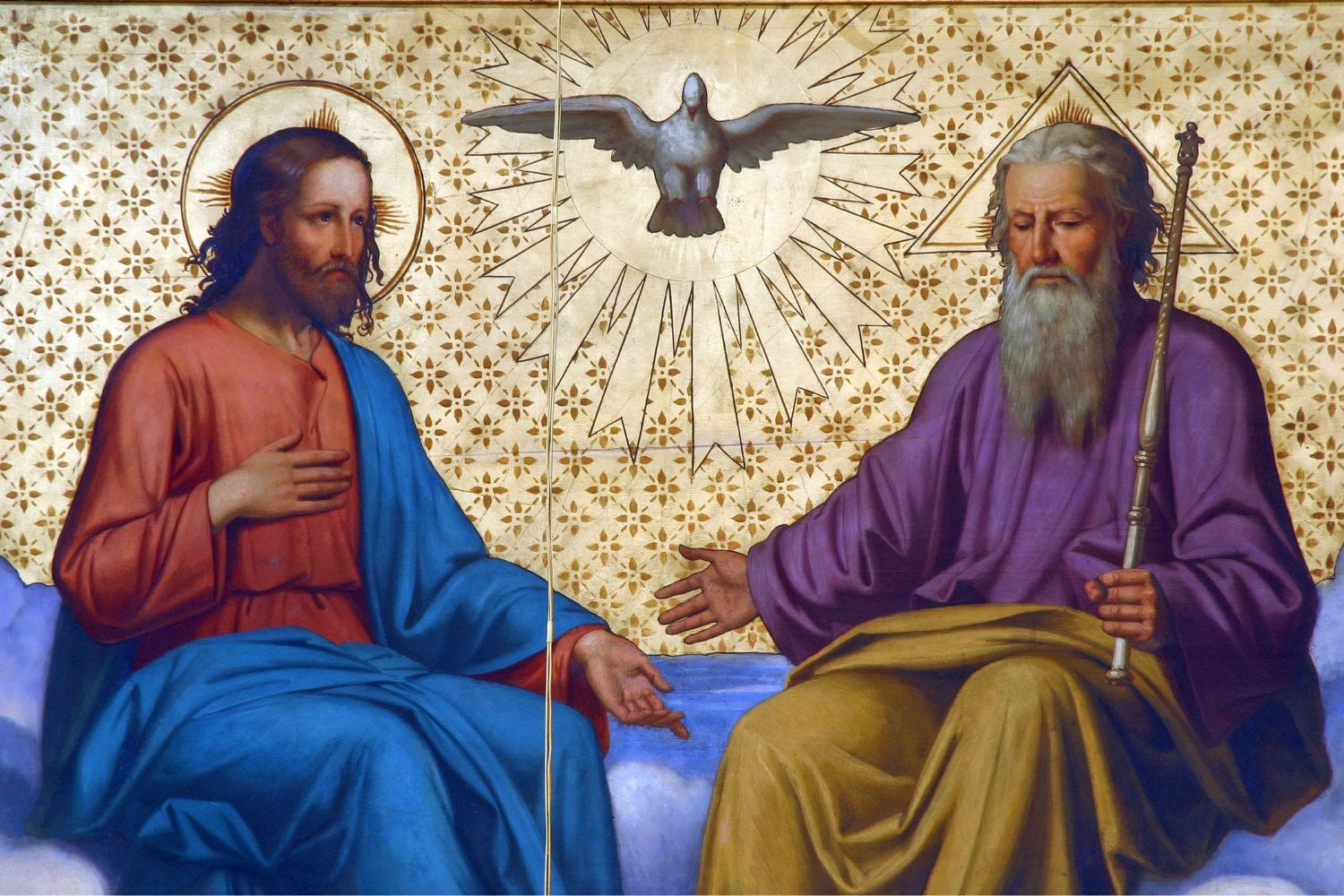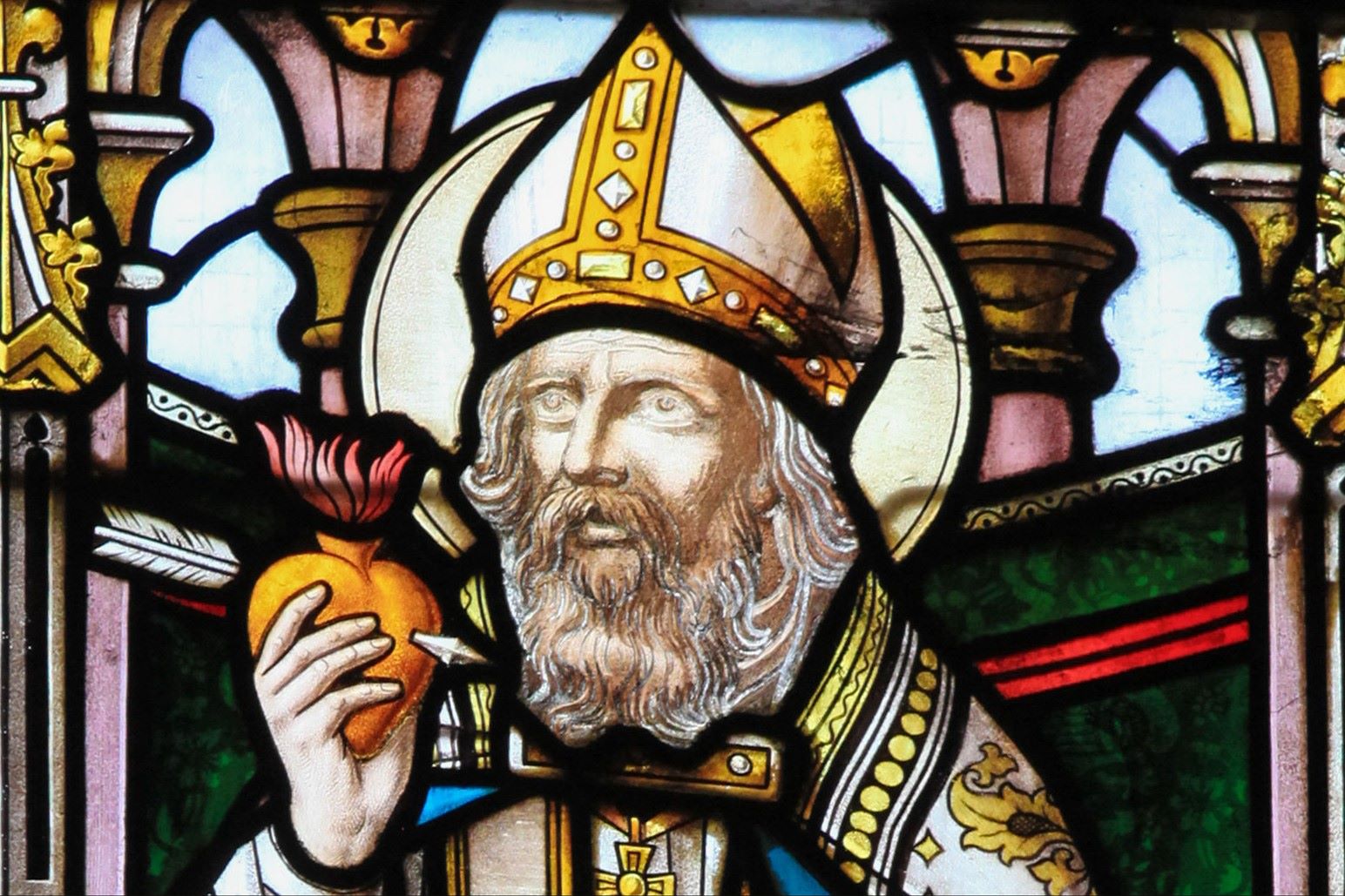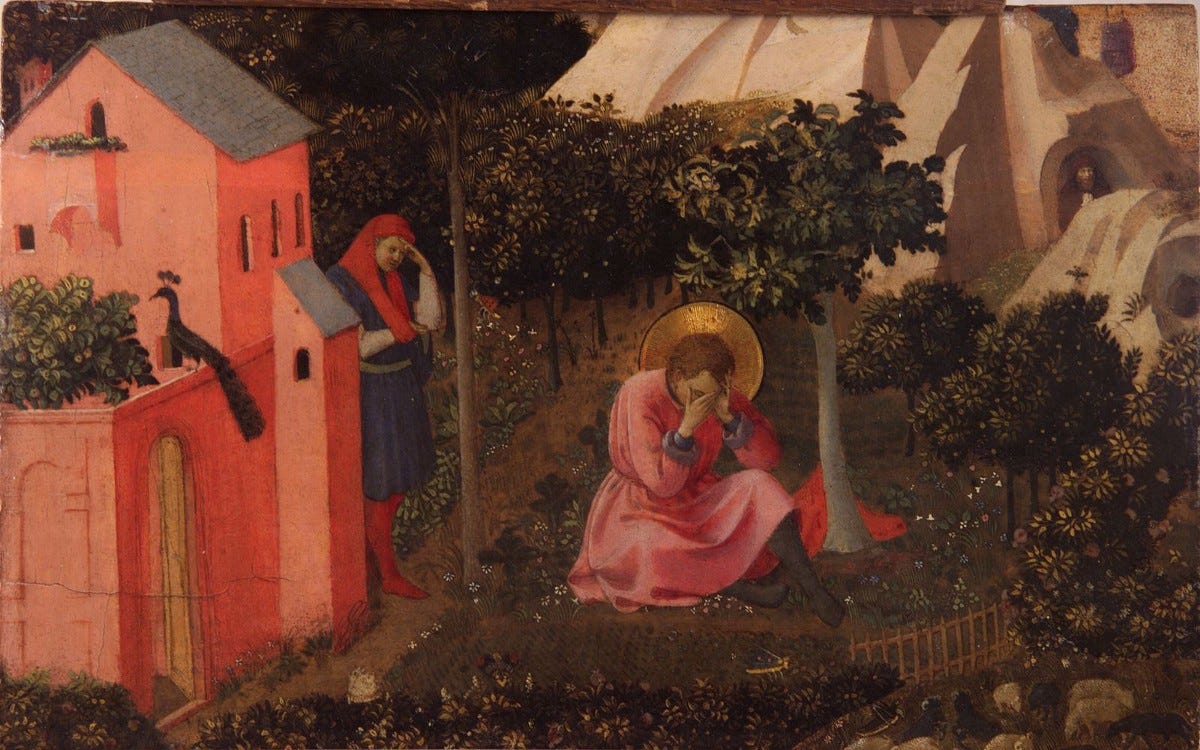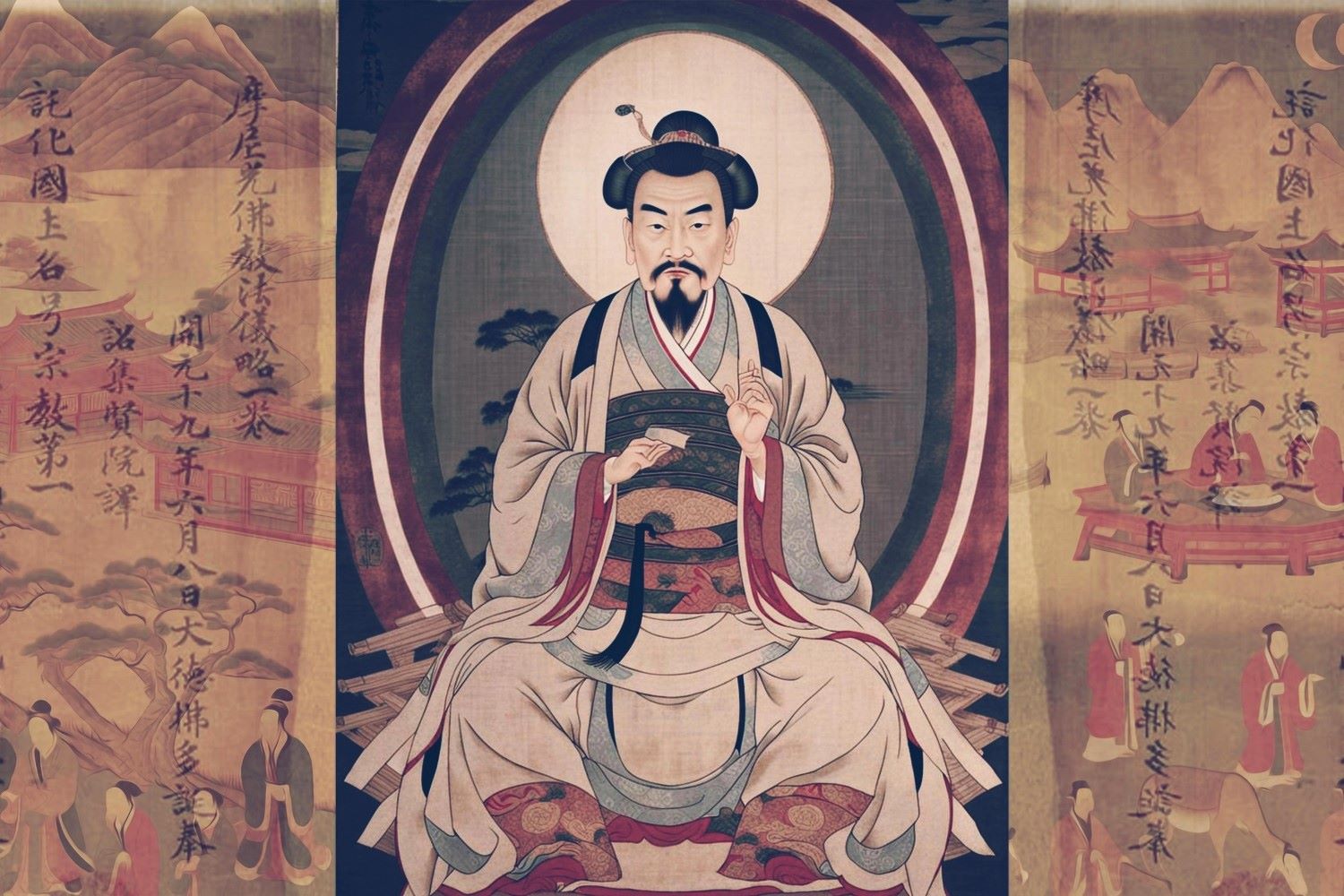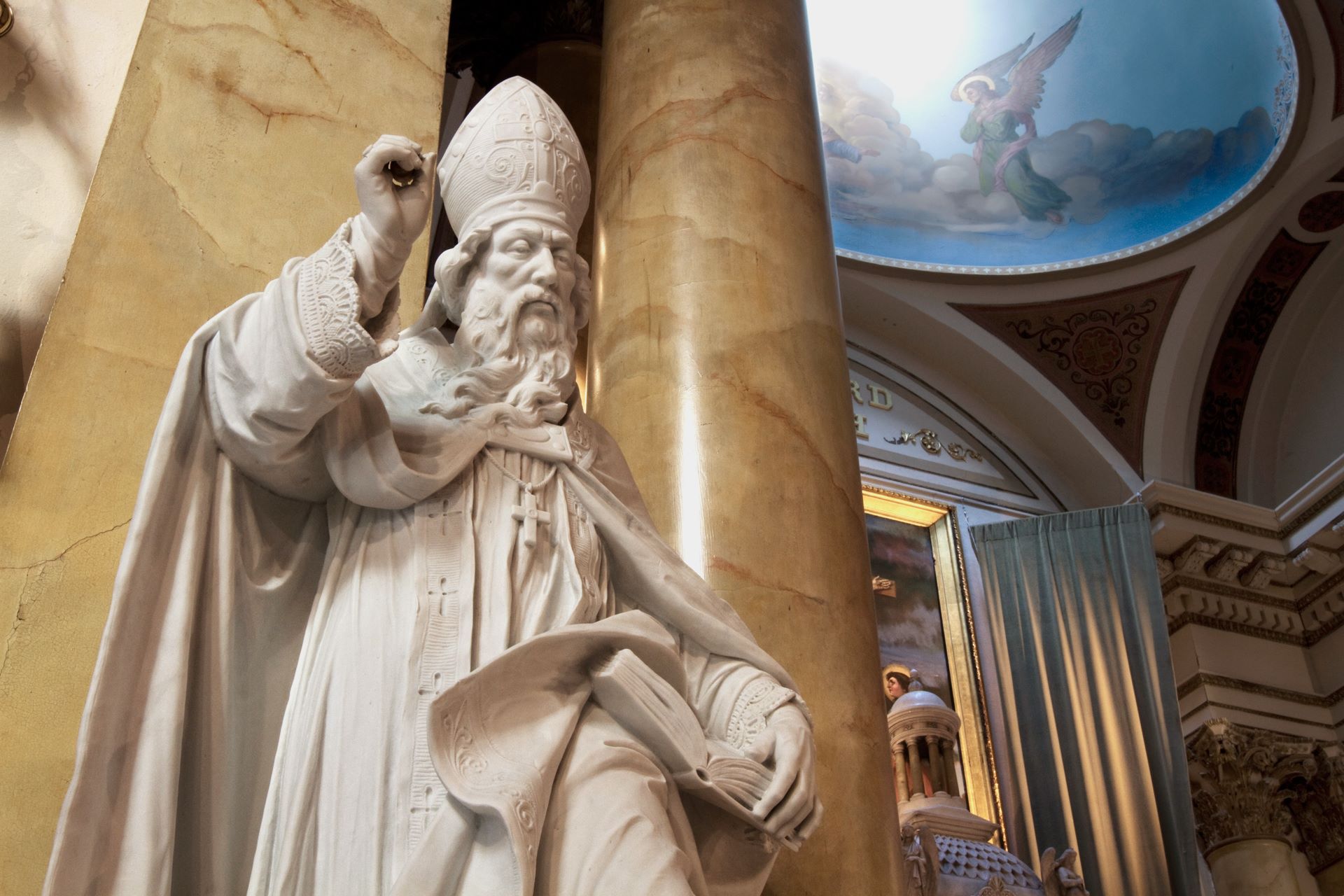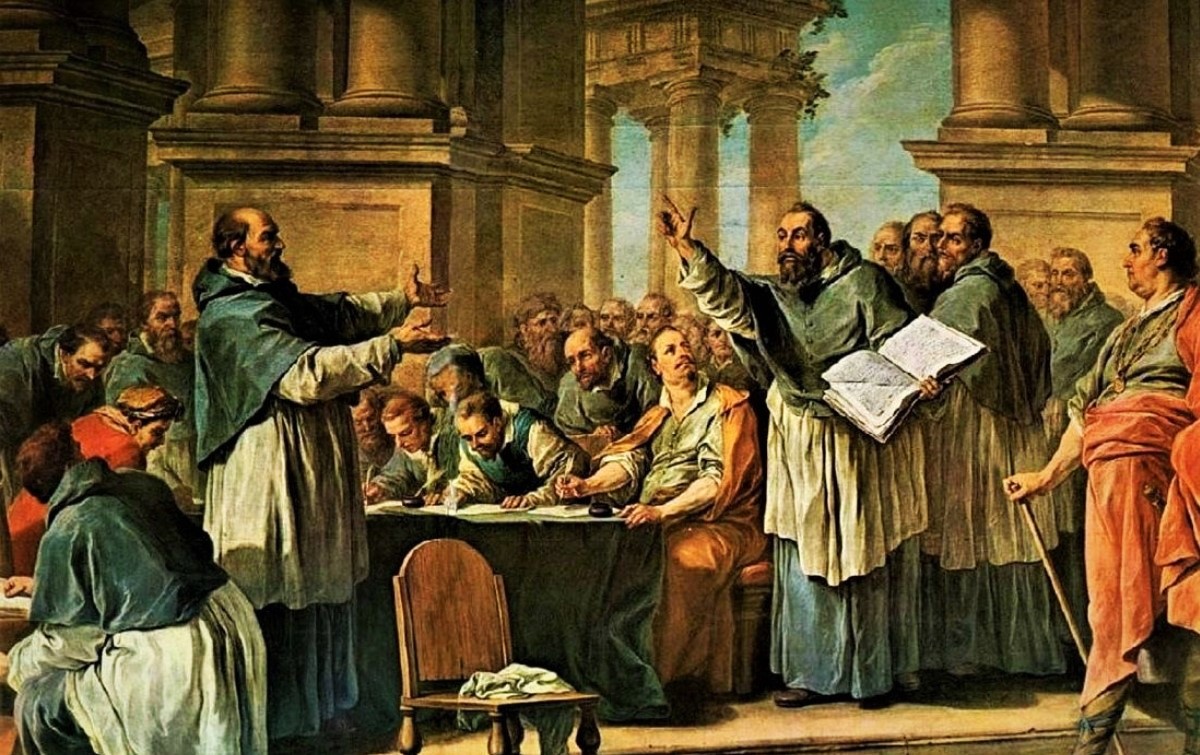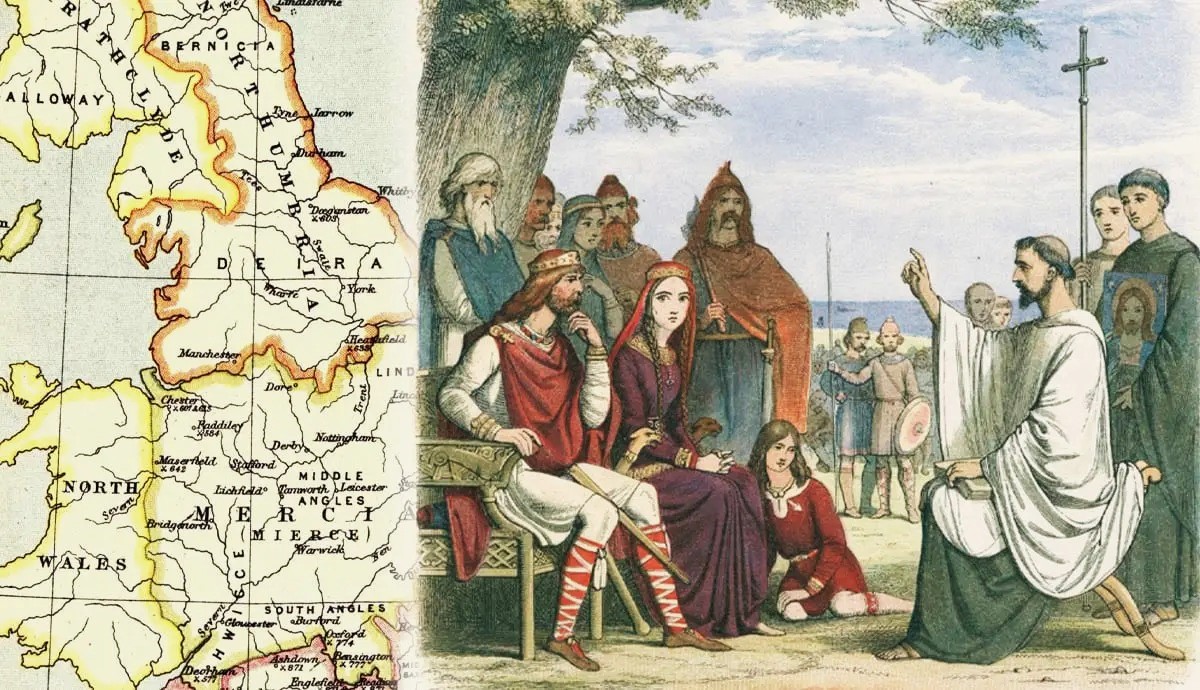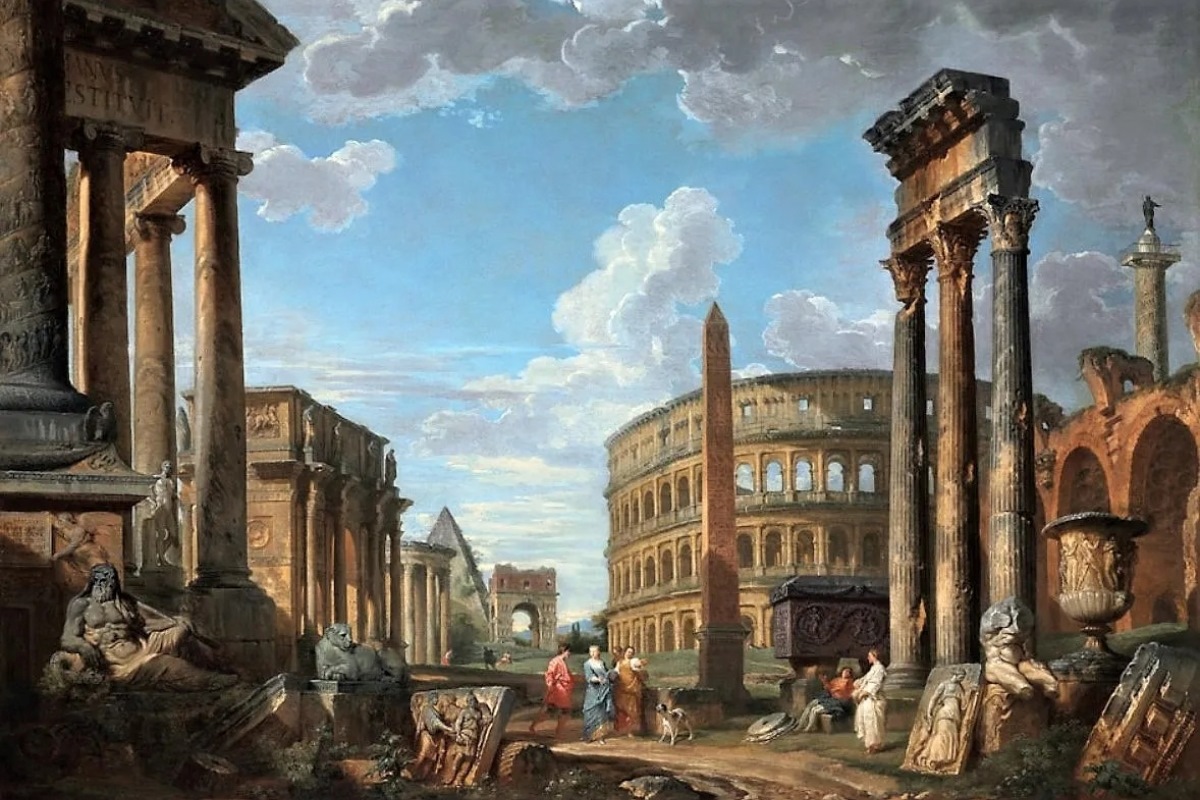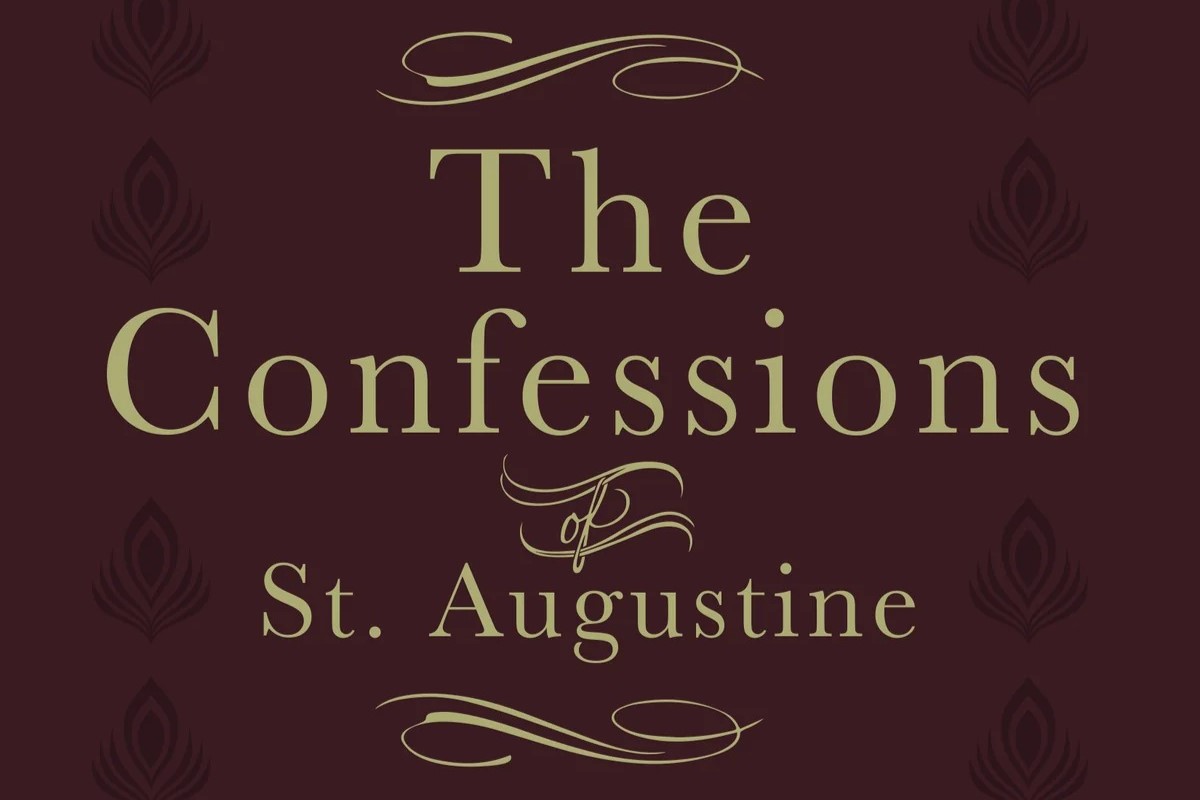Home>Theology and Spirituality>What Did Augustine Argue In The City Of God
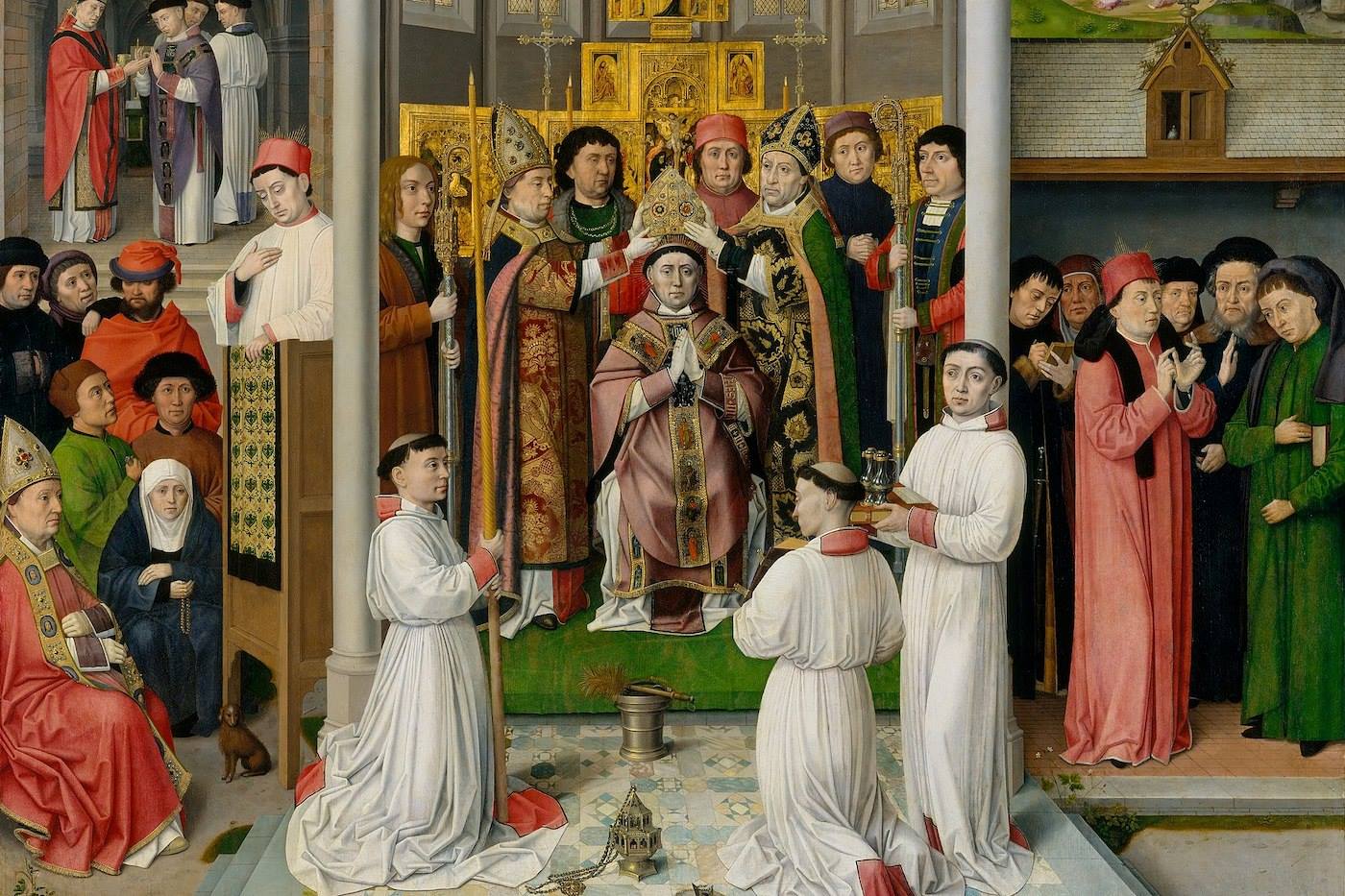

Theology and Spirituality
What Did Augustine Argue In The City Of God
Published: February 10, 2024
Peter Smith, Editorial Director at Christian.net, combines deep insights into faith, politics, and culture to lead content creation that resonates widely. Awarded for his contributions to religious discourse, he previously headed a major organization for religious communicators, enhancing dialogue on faith's societal impacts.
Discover Augustine's compelling arguments in "The City of God" and explore the intersection of theology and spirituality in this influential work. Gain insights into his profound perspectives on faith and the divine.
(Many of the links in this article redirect to a specific reviewed product. Your purchase of these products through affiliate links helps to generate commission for Christian.net, at no extra cost. Learn more)
Table of Contents
Introduction
Augustine of Hippo, a towering figure in the history of Christianity, penned one of his most influential works, "The City of God," in the early 5th century. This monumental piece of literature not only shaped the course of Western thought but also continues to resonate with contemporary theological and philosophical discourse.
In "The City of God," Augustine grapples with profound questions about the nature of human existence, the relationship between the divine and the temporal, and the ultimate destiny of humanity. His magnum opus serves as a profound exploration of the human condition and the eternal struggle between good and evil.
As we delve into Augustine's argument in "The City of God," we will unravel the dichotomy between the City of God and the City of Man, the impact of the fall of Rome on Augustine's worldview, and the pivotal role of Christianity in shaping the City of God. Through this exploration, we will gain a deeper understanding of Augustine's timeless insights and their enduring relevance in our contemporary world.
Augustine's Argument for the City of God
At the heart of Augustine's magnum opus, "The City of God," lies a compelling argument that transcends the confines of its historical context and resonates with timeless significance. Augustine's central thesis revolves around the existence of two distinct and irreconcilable societies: the City of God and the City of Man. This foundational concept serves as the linchpin for his profound exploration of human nature, divine providence, and the ultimate purpose of existence.
Augustine posits that the City of God represents the realm of the divine, where the pursuit of righteousness, virtue, and the love of God reign supreme. This celestial city embodies the eternal and unchanging principles of truth and goodness, serving as the ultimate destination for those who seek spiritual fulfillment and communion with the divine. In stark contrast, the City of Man epitomizes the temporal realm, characterized by human frailty, moral ambiguity, and the relentless pursuit of earthly desires and power.
Central to Augustine's argument is the inherent tension between these two cities, as they embody diametrically opposed values and aspirations. The City of God stands as an enduring symbol of transcendence and spiritual redemption, offering solace and hope in the face of human suffering and moral decay. In contrast, the City of Man symbolizes the flawed and transient nature of human endeavors, marked by the ceaseless ebb and flow of worldly ambitions and societal upheavals.
Augustine's argument for the City of God serves as a profound meditation on the perennial struggle between the sacred and the profane, the eternal and the temporal. Through his eloquent prose and incisive reasoning, Augustine invites readers to contemplate the profound implications of aligning oneself with either of these two cities. His argument transcends mere theological discourse, offering a profound commentary on the human condition and the enduring quest for meaning and purpose in a world fraught with uncertainty and moral ambiguity.
In essence, Augustine's argument for the City of God serves as a timeless testament to the enduring relevance of his theological insights. By delineating the stark dichotomy between the City of God and the City of Man, Augustine beckons humanity to reflect on its ultimate allegiances and aspirations, thereby illuminating the path toward spiritual enlightenment and divine communion.
The Two Cities: City of God vs. City of Man
At the core of Augustine's magnum opus, "The City of God," lies the profound dichotomy between the City of God and the City of Man. This foundational concept serves as the linchpin for his exploration of human nature, divine providence, and the ultimate purpose of existence. Augustine's delineation of these two cities encapsulates a timeless and compelling framework for understanding the fundamental tensions that define the human experience.
The City of God, as articulated by Augustine, represents the celestial realm where divine principles of righteousness, virtue, and the love of God reign supreme. It embodies the eternal and unchanging truths that transcend the temporal confines of human existence. Within the City of God, the pursuit of spiritual fulfillment and communion with the divine takes precedence, offering a transcendent vision of ultimate reality and purpose.
In stark contrast, the City of Man epitomizes the temporal realm, characterized by human frailty, moral ambiguity, and the relentless pursuit of earthly desires and power. This earthly city symbolizes the flawed and transient nature of human endeavors, marked by the ceaseless ebb and flow of worldly ambitions and societal upheavals. Augustine portrays the City of Man as a realm fraught with moral complexities and the inherent limitations of human agency, reflecting the imperfections and temporal nature of human society.
Central to Augustine's exposition of the two cities is the inherent tension between their contrasting values and aspirations. The City of God stands as an enduring symbol of transcendence and spiritual redemption, offering solace and hope in the face of human suffering and moral decay. In contrast, the City of Man embodies the struggle of humanity to reconcile its earthly existence with the yearning for spiritual fulfillment and moral rectitude.
Augustine's profound articulation of the City of God and the City of Man transcends mere theological discourse, offering a profound commentary on the human condition and the enduring quest for meaning and purpose. By delineating the stark dichotomy between these two cities, Augustine beckons humanity to reflect on its ultimate allegiances and aspirations, thereby illuminating the path toward spiritual enlightenment and divine communion.
In essence, Augustine's portrayal of the City of God versus the City of Man serves as a timeless testament to the enduring relevance of his theological insights. It invites contemplation on the perennial struggle between the sacred and the profane, the eternal and the temporal, resonating with profound implications for the human experience across diverse cultural and historical contexts.
The Fall of Rome and the City of God
The fall of Rome stands as a pivotal juncture in the historical narrative of Augustine's "The City of God," casting a profound shadow over his theological reflections and shaping his vision of the City of God. As the once-mighty Roman Empire succumbed to internal strife, external invasions, and the erosion of its political and cultural institutions, Augustine confronted the profound implications of this seismic event within the framework of his theological discourse.
The collapse of Rome served as a stark reminder of the transient nature of earthly empires and the inherent vulnerabilities of human civilization. Augustine grappled with the profound disillusionment and despair that engulfed many in the wake of Rome's decline, as the fabric of society unraveled and the certainties of the past gave way to uncertainty and upheaval. In response to this tumultuous era, Augustine sought to elucidate the enduring significance of the City of God amidst the ruins of earthly kingdoms.
Within the context of Rome's fall, Augustine articulated a profound theological response, emphasizing the timeless nature of the City of God as an immutable bastion of divine truth and spiritual redemption. In the face of societal disintegration and the erosion of temporal powers, Augustine sought to reorient the gaze of humanity toward the transcendent reality of the City of God, offering solace and hope amid the tumult of earthly vicissitudes.
The fall of Rome, rather than signaling the demise of Augustine's theological vision, served as a catalyst for reaffirming the enduring relevance of the City of God. Augustine's reflections on the transient nature of earthly kingdoms and the unshakeable foundations of the celestial city resonated with a timeless profundity, offering a compelling vision of spiritual resilience and divine providence in the face of historical upheaval.
In essence, the fall of Rome cast a profound imprint on Augustine's articulation of the City of God, underscoring the enduring relevance of his theological insights in the midst of historical tumult. Augustine's response to this epochal event serves as a testament to the enduring resilience of the City of God, transcending the temporal vicissitudes of human history and offering a timeless vision of spiritual redemption and divine sovereignty.
The Role of Christianity in the City of God
At the heart of Augustine's magnum opus, "The City of God," lies the pivotal role of Christianity in shaping the celestial realm of the City of God. Augustine's profound theological exposition underscores the transformative influence of Christian faith in illuminating the path toward spiritual redemption and divine communion within the celestial city.
Central to Augustine's vision is the profound impact of Christianity as a transformative force that transcends the temporal confines of human existence. Christianity, as articulated by Augustine, serves as the guiding light that leads humanity toward the eternal truths and redemptive grace embodied within the City of God. Through the teachings of Christ and the salvific promise of divine grace, Christianity emerges as the cornerstone of spiritual renewal and moral rectitude within Augustine's theological framework.
Moreover, Augustine elucidates the profound role of Christian virtues and ethical precepts in shaping the moral fabric of the City of God. The Christian ethos of love, compassion, and moral integrity stands as a testament to the transformative power of faith in nurturing a community characterized by righteousness and spiritual harmony. Within the celestial city, the indelible imprint of Christian values serves as a beacon of hope and moral guidance, offering a vision of communal life imbued with divine grace and ethical rectitude.
Furthermore, Augustine's exposition of the City of God underscores the redemptive narrative of Christianity as a source of spiritual solace and transcendent meaning in the face of human suffering and moral frailty. The Christian message of salvation and the promise of eternal life infuse the celestial realm with a profound sense of hope and spiritual renewal, offering respite from the existential anxieties and moral ambiguities that define the temporal realm of the City of Man.
In essence, Augustine's portrayal of the role of Christianity in the City of God serves as a profound testament to the transformative power of faith in shaping the celestial realm. Christianity emerges as the animating force that imbues the City of God with redemptive grace, moral integrity, and spiritual renewal, offering a timeless vision of divine communion and transcendent fulfillment within the celestial city.
Conclusion
In conclusion, Augustine's monumental work, "The City of God," stands as a timeless testament to the enduring relevance of his theological insights and their profound implications for the human experience. Through his compelling argument for the City of God, Augustine invites readers to contemplate the perennial struggle between the sacred and the profane, the eternal and the temporal, resonating with profound implications for the human condition across diverse cultural and historical contexts.
The dichotomy between the City of God and the City of Man serves as a compelling framework for understanding the fundamental tensions that define the human experience. Augustine's delineation of these two cities encapsulates a timeless and compelling vision of the human condition, offering profound insights into the perennial quest for meaning and purpose in a world fraught with uncertainty and moral ambiguity.
Moreover, the fall of Rome cast a profound imprint on Augustine's articulation of the City of God, underscoring the enduring relevance of his theological insights in the midst of historical tumult. Augustine's response to this epochal event serves as a testament to the enduring resilience of the City of God, transcending the temporal vicissitudes of human history and offering a timeless vision of spiritual redemption and divine sovereignty.
Furthermore, Augustine's profound articulation of the role of Christianity in shaping the celestial realm of the City of God underscores the transformative influence of Christian faith in illuminating the path toward spiritual redemption and divine communion. Christianity emerges as the animating force that imbues the City of God with redemptive grace, moral integrity, and spiritual renewal, offering a timeless vision of divine communion and transcendent fulfillment within the celestial city.
In essence, Augustine's "The City of God" continues to resonate with contemporary theological and philosophical discourse, offering profound insights into the enduring struggle between the sacred and the profane, the eternal and the temporal. Through his eloquent prose and incisive reasoning, Augustine beckons humanity to reflect on its ultimate allegiances and aspirations, thereby illuminating the path toward spiritual enlightenment and divine communion.
